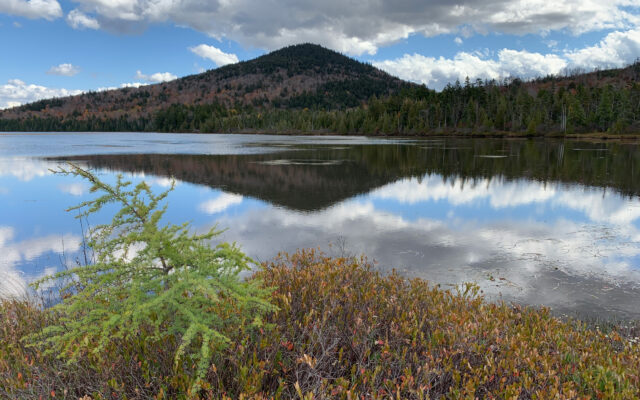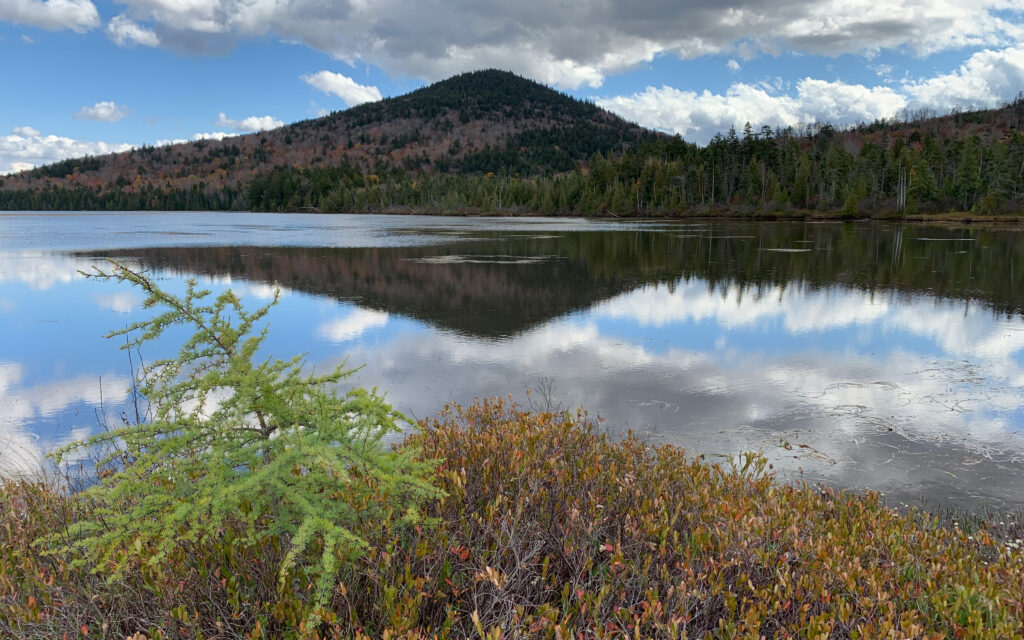
Canadian mining company promises $100K jobs as it courts support for Katahdin-area project
DOVER-FOXCROFT — A Canadian company that wants to drill for precious metals near Pickett Mountain is visiting Maine municipalities and groups to attract support — and promising high-paying jobs in return.
Piscataquis County was the latest stop for a representative of Wolfden Resources, an Ontario-based investment group that wants to build a mine in northern Penobscot County, near the border with Aroostook County and the Katahdin Woods and Waters National Monument.
John Seavey, a Dover-Foxcroft resident and Wolfden representative, told Piscataquis County’s commissioners about the project Tuesday. The company owns about 7,000 acres in T6R6 WELS, an unorganized township near Patten, where it wants to extract a large mineral deposit following Maine’s strict standards, he said.
Wolfden promises about 272 jobs once the project is fully operational, and it would benefit residents of Piscataquis County, along with those in Aroostook and Penobscot counties, he told commissioners. Project supporters tout the advantages of bringing more employment to a rural area where jobs can be hard to come by, but environmentalists have pushed back, fearing harmful effects on fish and wildlife, among other concerns.
The project needs to break through major hurdles with state agencies before it can make real movement, including rezoning approval from the state’s Land Use Planning Commission. It’s the first real test of Maine’s mining law, considered to be one of the toughest in the nation.

A view of Pickett Mountain and Pickett Mountain Pond, which could serve as the site of a new minerals mine by Canadian mining company Wolfden Resources.
“We’re talking about a $650 million to $700 million economic impact to the region,†Seavey told commissioners. “Now, are there 272 people in Patten, Maine, looking for a job? Negative. So how do we as a company fill those jobs?â€
Wolfden is working with Eastern Maine Community College and Northern Maine Community College, as well as University of Maine campuses in Orono, Fort Kent and Presque Isle to implement training programs, he said.
The average starting pay for jobs would be about $100,000 a year, Seavey said. Employees would work seven days, then have seven days off, and they could choose to commute or reside at a rental or someplace near the mining operation for several days at a time.
“With injection of capital into an area like that, it starts to expand,†he said. “We’re going to be looking for local help and it’s going to expand to places like Dover-Foxcroft, possibly even toward Somerset County and Skowhegan.â€
The company will also look for workers in northern Penobscot County and in cities like Presque Isle, he said.
Wolfden has worked on the project for about four years, which includes encouraging towns in the Pickett Mountain area to adopt ordinances that support the mining. The towns of Stacyville and Hersey voted to back the project last year, which isn’t necessary but demonstrates local support for Wolfden’s efforts.
The operation would involve extracting zinc, copper and lead and small amounts of silver and gold, and it can be done safely according to Maine’s strict standards, Seavey said.
County Commissioner Paul Davis, whose term as a state senator recently ended, brought up concerns about sulfides polluting waterways and killing fish.
“If you can address that, then it will be alright,†he said. “But if you can’t address that, you’re not going to get what you want.â€
Seavey acknowledged that some Mainers have worries about the effects of mining and said that groups like the Natural Resources Council of Maine, which has strongly opposed the project, keep the company in check.
A concern that has consistently come up is Wolfden needs to prove that its planned wastewater treatment will work.
Wolfden’s plan to contain and store discharge includes using a 50-acre parcel of land to stack “tailings†— a mining by-product consisting of processed rock or soil left over after mineral extraction — in multiple layers, each protected with a barrier to prevent seepage into the ground.
The Land Use Planning Commission is considering the company’s application to rezone about 374 acres that would allow the mining operation. Wolfden filed its application in January 2020 and withdrew it in October 2021 after commissioners found significant errors and inconsistencies. It resubmitted the application last month.
If zoning changes are approved, the company will need to spend from three to four years on environmental studies and work with the Maine Department of Environmental Protection, Seavey said.
It would take a year or two to build the plant, and mining would last from 10 to 12 years. Then the operation would be torn down and the landscape would be restored, Seavey said. Wolfden anticipates the project lasting 20 to 25 years from now, he said.
The project could set the bar for the rest of the world and prove that mining can be done without ruining Maine’s woods, waters and natural habitats, Seavey said.
Jobs and positive economic impact are needed in the area, said Commissioner Andrew Torbett, who serves as the chairperson. He warned Seavey about agencies and environmental activists who will go after the project and delay it to the point that Woldfen might be forced to back out. He gave the failed Greenville-area ski resort redevelopment as an example.
Maine is full of untapped natural resources that people can’t seem to access or aren’t allowed to, Torbett said after Tuesday’s meeting.
“We have these standards to be met and we’d like to see them met,†he said. “We don’t want our streams destroyed. But after what we’ve been through with the [Greenville] ski area, I’m very skeptical.â€